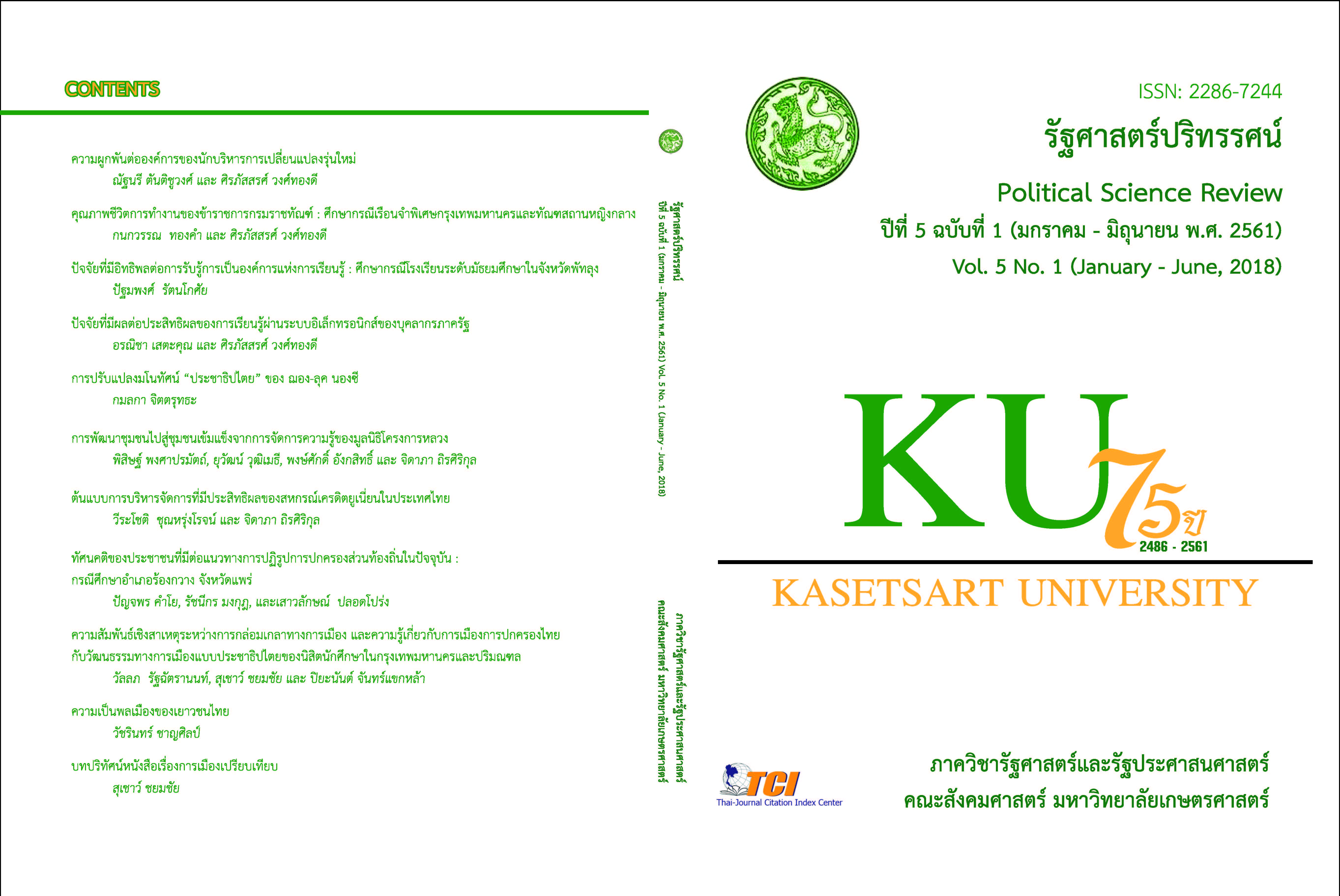Thai Youth’s Citizenship
Keywords:
Citizenship, Political socializationAbstract
This research aims 1) to study the level of Thai youth’s citizenship and 2) to compare Thai youth’s citizenship by personnel and external variables. This study is a quantitative research. The research samplings include 1) grade 10-12 students in secondary education Zone Office. 2) undergraduate students in central south ,north east and north Thai region. Total samplings are 600 students which are chosen by using multi-stage sampling method. Research instrument is a questionnaire. Data analysis are Percentage, Mean, Standard Deviation , Pearson ' s Correlation Coefficient, Multiple Classification Analysis and Structural Equation Model.
The research result finds that Thai youth who are 18- 25 years old grade 12 students and undergraduate students from six thai regions have high level of citizenship (
=4.01, S.D.=.490) Considering each aspect of citizenship, youth’s citizenship is ranked from the highest to the lowest level by the following aspects 1) loyalty to nation, religion and king 2) integrity 3) social responsibility 4) ethics and 5) participation. Thai youth’s citizenship receives high level of political socialization and has the perception for political informations through the internet. Thai youth has the exchange of social, economic and political ideas for 1-2 time a week. Hypotheses test finds that residential area, the perception for political informations,the exchange of social, economic, political ideas,and political socialization have relationship with citizenship of Thai youth.
The analytical result of SEM shows that political socialization from family, peer group, school, social media, religion, and political party positively direct influence on Thai youth’s citizenship



